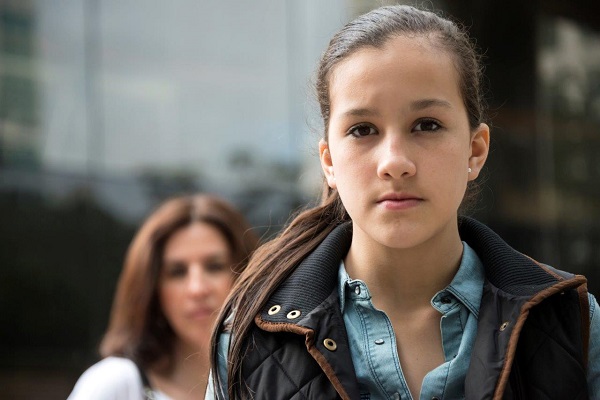Research In Action
Research In Action
Breadcrumb

A child’s confession that he or she is being bullied at school can leave parents feeling sad, angry, helpless, or all three at once.
Taking action to protect their child and stop the bullying behavior is usually parents’ first thought, but many parents can be at a loss on just how to proceed. A calm, rational approach is most likely to result in stopping the bullying behavior and helping the child feel safe at school. Here are proactive steps clinicians can recommend to parents to deal with a bullying situation:
- Talk to the child about what is happening to him or her. Get details about who is doing the bullying, what the aggressor is doing, and when and where it occurred. Parents should make sure their child knows that their complaints are being taken seriously. It’s also important for parents to be a role model for their child by remaining calm and focused.
- Assess the situation. Determine the severity of the problem by considering whether a one-time conflict has taken place or real bullying is occurring. Has the child complained about the aggressor before? Bullying takes the form of repeated behavior in the context of a power imbalance.
- Call the school. Parents should contact the school as soon as possible once they’ve talked with their child. They should start at the top with the principal or assistant principal to show they're very concerned about their child and to get the ball rolling on a discussion and/or an investigation. Also, parents should look up online or ask for a copy of the school district’s policy on reporting and investigating a bullying incident to learn the procedures that will be followed and how to challenge an investigation’s conclusions, if necessary.
- Follow up with a meeting. Parents should meet with the individual who has been designated the point person in the investigation. Depending on the school, this might be an administrator, teacher or counselor. Parents should bring a list of questions to determine who is conducting the investigation, the timeline of the investigation, how their child’s safety will be ensured, etc. Parents should consider having a friend or relative accompany them to help them keep calm and lend support.
- Refrain from contacting the family of the alleged bully. Parents should not attempt to address a bullying issue on their own. It’s too easy for people to lose their tempers with each other and escalate the problem. Going through school officials ensures a mediator will be investigating and that a rational, measured approach will be taken.
- Monitor the child’s social media use. Aggressive behavior targeting a child online adds a new level to bullying because the behavior may not be taking place during school. However, it’s important to inform the school if cyber bullying is occurring because bullying that takes place outside of school will certainly have an impact on children during school hours.
- Talk to the child about what is happening but don’t take away his or her connected devices. Banning smart phones and computers is a short-term fix, but won’t solve problems in the long-term, just maybe the short-term.
Finally, perhaps the most important thing parents can do to help their child takes place before the bullying behavior even starts. It’s vital that parents communicate with their children on an ongoing and daily basis so they know when something is wrong and can try to help. The more parents know, the better they’ll be able to detect warning signs, such as not wanting to go to school, becoming withdrawn, or not socializing with friends. Talking regularly will also encourage a child to come to his or her parents with problems or concerns.
CHOP’s Violence Prevention Initiative has developed educational fact sheets around bullying prevention:
Click here to download a fact sheet for parents on helping a child who is being bullied.
Click here to download a fact sheet for youth experiencing bullying.

